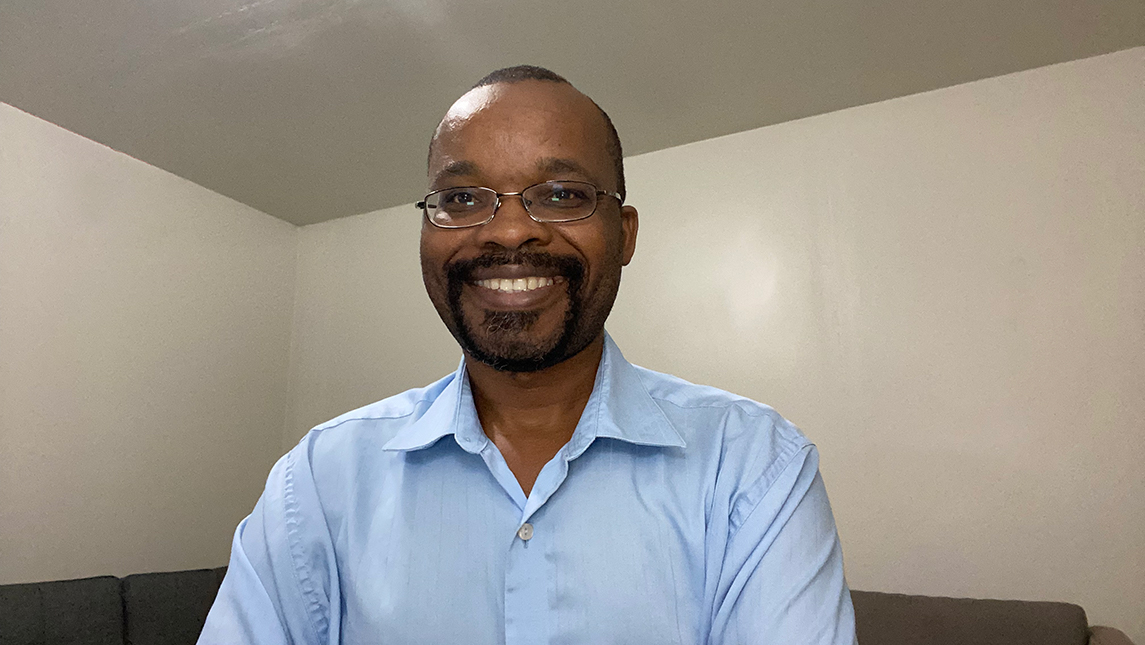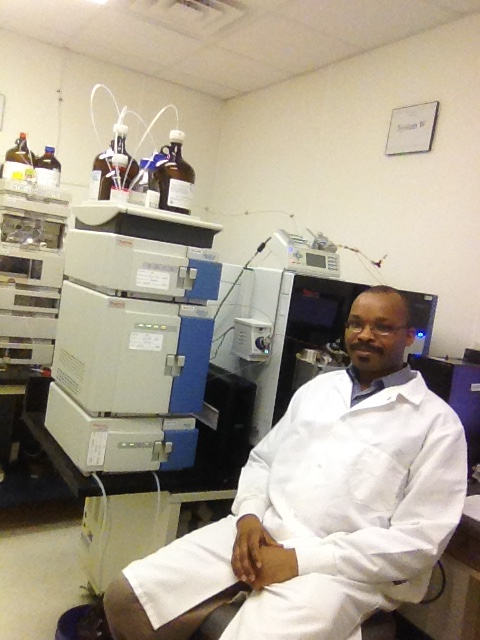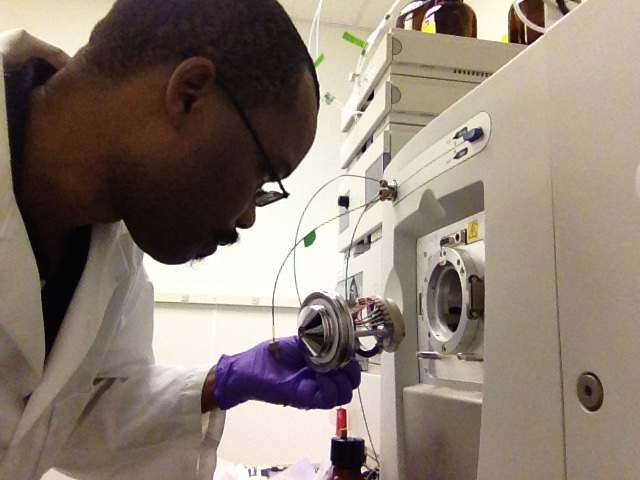
Kenya native and double alumnus Dickson Wambua came to UNC Greensboro as an international student in 2007 to pursue a master’s degree in biochemistry. He chose UNCG because of the variety of programs offered, the small size of the department, and the opportunity to hold a teaching assistantship.
“UNCG and the biochemistry department felt like home,” said Wambua.
During his studies, he developed analytical methods for the measurements of Alzheimer’s disease biological markers, making it possible to diagnose and monitor the progression of the disease.
And when it came time to graduate, Wambua had a decision to make.
“I planned to graduate with my master’s and get a job to support my family both in the U.S. and back at home in Kenya. The pursuit of a Ph.D. would have to wait.”
But just as his program ended, UNCG launched its Ph.D. program in medicinal biochemistry and received a GK-12 grant from the National Science Foundation to partner graduate students with elementary and high schools to teach science.
This, along with support from his professors, made it hard to put his goals on hold any longer.
“It was an exciting opportunity for me to advance my scholarship in a field that I was very passionate about. “
During his Ph.D. program, under the leadership and mentorship of Dr. Norman Chiu, Wambua taught third-grade science for two years and continued to develop analytical methods for the detection and quantitation of microRNA, a set of genetic materials that comes from DNA capable of controlling levels of proteins in the body. These proteins can indicate and help treat a diseased state. He went on to publish seminal papers on his research, wrote and distributed software, and presented his research nationally and internationally before graduating in 2012.
“The academic community at UNCG is really kind and welcoming,” Wambua said. “The academics are well-structured, and the skills taught are practical in real-world applications. This makes UNCG a collaborative space capable of producing game-changing professionals.”
The skills he developed during his time at UNCG helped him to land his first job as a mass spectrometry department director at Craft Technologies – now Eurofins – in Wilson, N.C., where he developed analytical methods for breast cancer diagnosis.
This prepared him for his current role tackling a major public health concern as part of the nation’s health protection agency.
In 2015, Wambua joined the Centers for Disease Control and Prevention (CDC) in Atlanta, Ga. to work on a project involving the biomonitoring of trans fatty acids, which, when consumed heavily, can cause increased risk of cardiovascular disease in the U.S. population.
Currently, Wambua is involved in the biomonitoring of common pesticides in the U.S. population at the CDC. The widespread use of pesticides has always been of public health and scientific interest, and his team is involved in the development of new analytical methods for the measurement and monitoring of human pesticide metabolites. This important data is used to inform public health policies.
Wambua describes working at the CDC as a blessing.
“There is nothing that equals the opportunity to work amongst the greatest minds in the world on a mission to protect the safety, health, and security of our country. For that, I am greatly appreciative.”
His advice to UNCG students?
“I know that my education at UNCG prepared me well to take part in thought leadership and the creation of new knowledge which is a critical role in our country. Trust in yourselves, your education, and create a good network around yourselves. After you graduate, don’t be afraid of taking on challenges that appear bigger than you can handle.”
Story by Alexandra McQueen, University Communications




